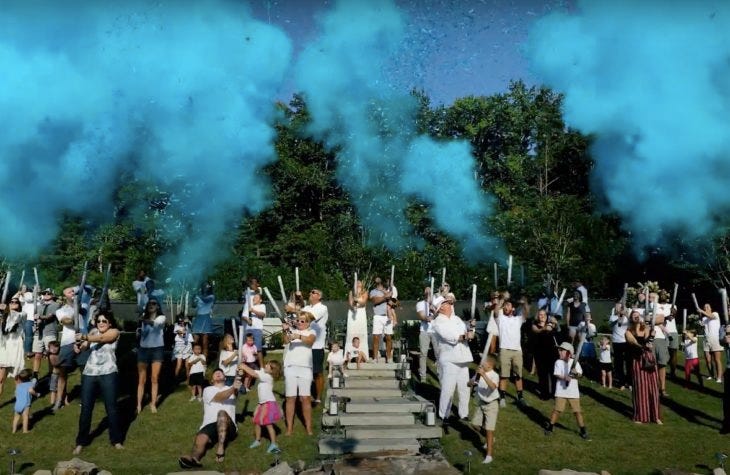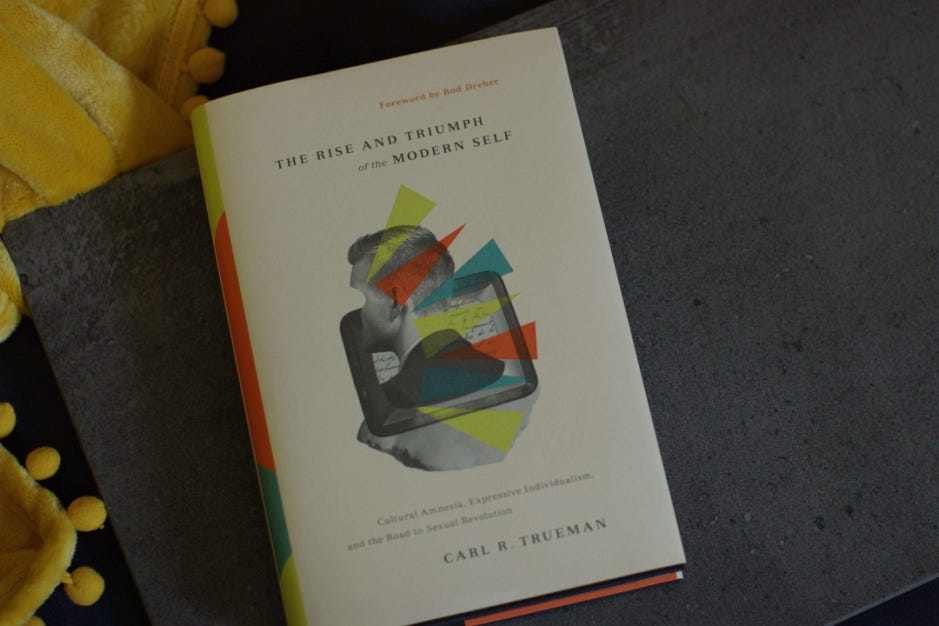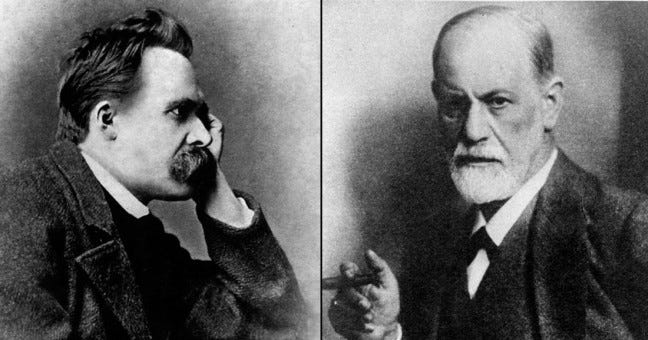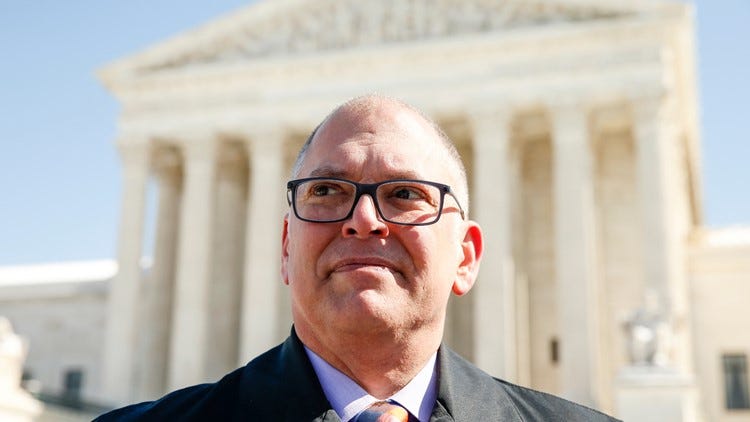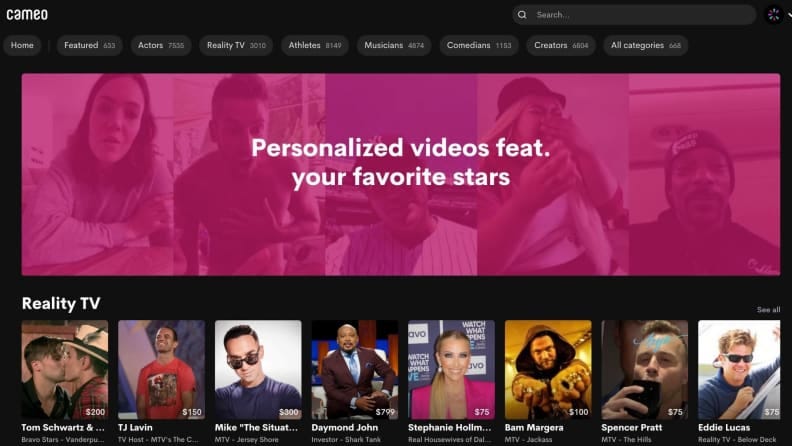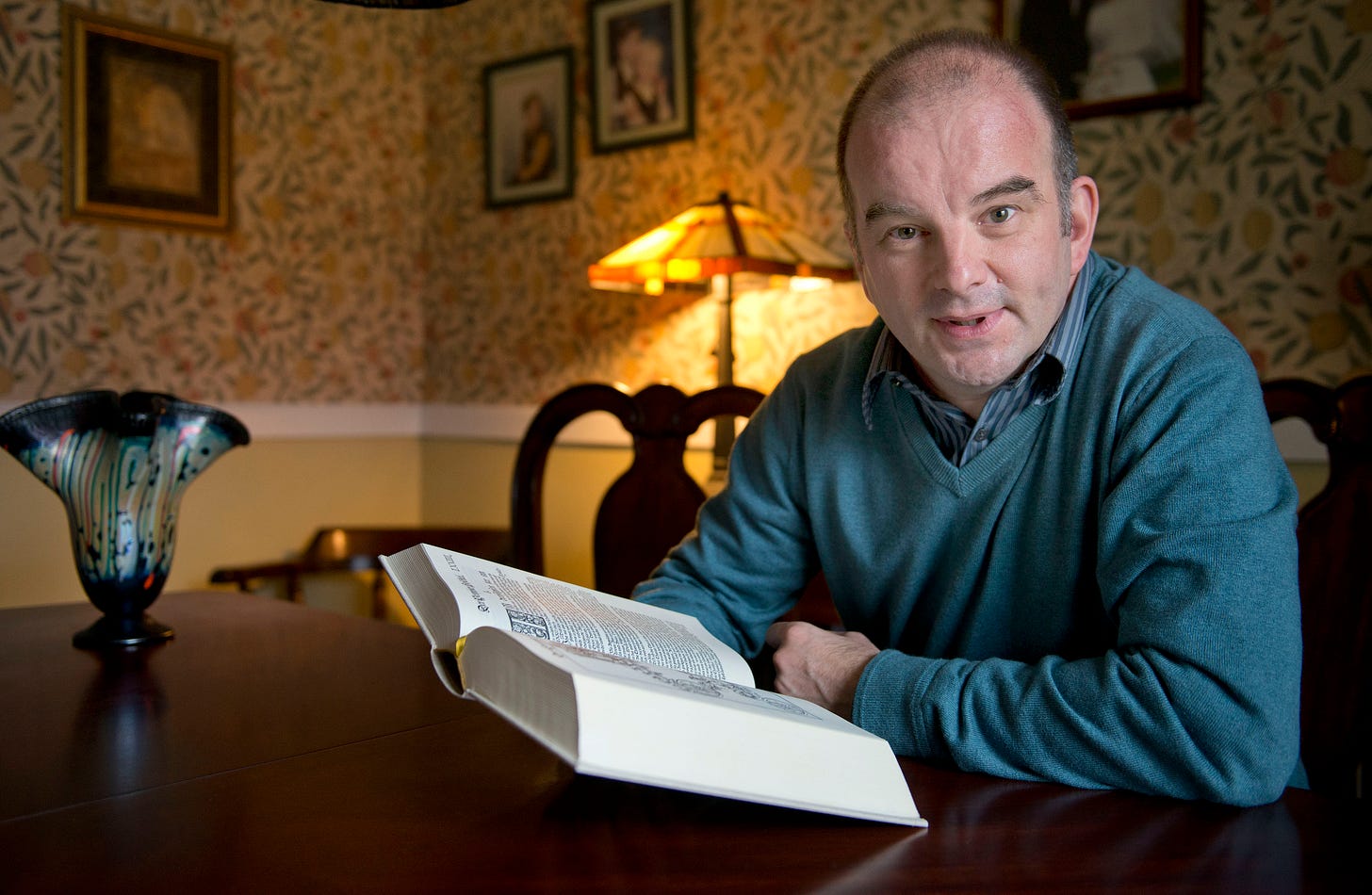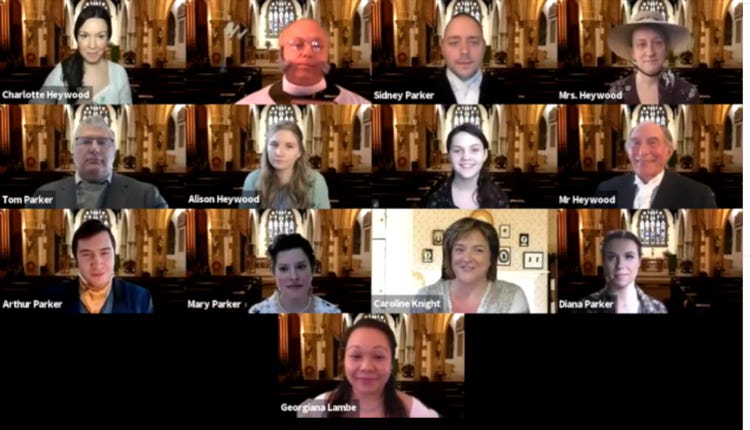Dear Reader,
Despite an open rate that was 7% higher than the average for my previous two posts (thanks!), I lost a few subscribers this week and only received a few emails in response to last week’s newsletter on race. Those few emails, however, were powerful and plenty heartfelt:
“Having also been raised in a non-diverse small town, my only interaction with a black person prior to college was the girl who came to our high school. Imagine, her family transferred in and within a year she was a cheerleader and active in school. We saw color because she was/is black - but we did not see ‘a black girl.’ We saw a friend. I never dreamed she may be having different experiences outside of our small, white school.
I am not a racist. I have never, nor will I ever, work to specifically bring harm or lack of opportunity to someone simply based on the color of their skin - it is not in my DNA. I am not a racist and I will keep telling myself that no matter what the national narrative is. Thank you for the kindness you show in your writing and for starting THIS conversation.”
This reader’s experience growing up was like mine, but he pushed back on the reparations idea:
“What a hot topic you picked this week. I am remarkably like you, in that, as far as I remember, I haven’t had any racial confrontations. Maybe an argument or two on the basketball court playing pickup ball at college, but certainly nothing racially motivated.
…A quick touch on reparations. You do have a good point on the ‘head start’ [of the Dunham family owning property]; however, I am going to disagree. My ancestors didn’t even come here until long after slavery ended. So I shouldn’t have to be burdened with the expense of reparations. And, what a huge can of worms to open. How much? What is next? What cause or whatever demands payments? I sort of feel the Great Depression, in general, started everyone over at zero; 90% of the population was literally dirt poor coming out of the 1930s. (I know your Rockefellers, etc., still managed to be seriously wealthy, but really, that group is small.) From then on, it was what you did and made of yourself.
I will concede that there was serious discrimination longer than that. But there have been so many black people that have been successful businessmen and women; they chose to do that. Again, it would be an interesting look at percentages in relation to ethnicity, but there are a tremendous amount of poor white people that haven’t done anything with their lives. Does it match?”
Finally, this reader shared his unique perspective and blew me away with his story:
“I am a biracial man (black father, white mother) who has grown up in parts of the country that are not very diverse. In Alaska, it is very similar to Montana - you're either white or Native, though I recently learned that when Alaska formally became part of the Union, the way Alaskan Natives were treated was very different than the Native American tribes of the Lower 48. However, some of the prejudices and social stigmas remained. But I digress...
Because I had more melanin than most of my classmates and friends growing up, I affectionately dubbed myself the ‘token black friend.’ Beyond that, I never thought much about my race; it wasn't central to my identity and consequently wasn't that important.
Looking back, I realize that one time I was racially profiled while driving through a small town in Oregon, but even then, my mind didn't immediately jump to my race because my identity was not wrapped up in what color my skin was. It was only once I moved to the South for a short period of time that my race became an important part of my cultural conversation and I began to realize how significant it was for some people.
When I lived in the South, my race was constantly brought up. While I was biracial, being both black and white, I was, and I quote, ‘Not black enough.’ Because I was raised in the North in predominantly white areas, I knew nothing about black culture and couldn't identify with it. While I lived in the South, I was given a thorough ‘education’ on cultural icons, language, attitude, and handshakes among other things. I learned a lot, but even after living there for a year, I still wasn't ‘black.’
My time in the South was an eye-opening and humbling experience, as more often than not, I was ostracized to some degree from black community, not only because of the lightness of my skin tone, but also because of my ignorance. The alienation I felt from the black community was incredibly hurtful. It would seem to me that ostracizing someone because of their skin color and lack of understanding is racist behavior. I was prejudged and then treated unfairly.
What I find most interesting now, some fifteen years later, is that the national conversation is revolving around prejudiced attitudes with regards to race and policing, the idea being that police prejudge black people and then treat them unfairly. I find myself again wondering where I fit in this conversation. Should I be upset by the nearly daily new reports of black people being shot by police? Should I be ‘rejoicing’ that Derek Chauvin was found guilty and claim it is the beginning of accountability? Or am I not ‘black enough’ to be on the black side of the debate and must instead be a ‘white ally’? It’s all very confusing.
On top of all that, I have personally known police officers and cannot agree with the idea that they are all power hungry racists out to kill innocent black people. That is an unfair caricature and a straw man fallacy. I also feel that not enough attention is given to the fact that many people who are shot by police are resisting arrest, either in the act of harming another human being, or fleeing. What is the officer to do in that situation?
The truth is, I have opinions, but I often refrain from sharing them fully because I don't know where my place is. What I do know is that my identity is not wrapped up in my race; my identity is found in Christ. If more of us found our identity there, perhaps this would be a more fruitful conversation and we'd actually go somewhere with it rather than simply going around in circles.”
No words…other than I love my readers. Thanks for reading and sharing such heartfelt words.
Craig
Hot Takes
“Why the New York Times Is Retiring the Term Op-Ed” - This may have something to do with the entire paper having become an opinion editorial, not to mention the fact (as chronicled in Second Drafts two weeks ago), that Substack is trying to recruit the Times’ opinion writers, paying six figures). Opinion editor Kathleen Kingsbury writes about the decision to nuke the Op-Ed page:
“It is a relic of an older age and an older print newspaper design. So now, at age 50, the designation will be retired.”
I have a hard time swallowing this as a decision made out of chronology or layout. Might this be a sign of the Times conveniently embracing the opportunity to minimize the worth of other voices? With “guest essays” instead of editorials, it would seem the Times has even more space to print the worst that wokeness has to offer (all without expectation to “edit” or take responsibility for).
In case you may have forgotten, this is why former (and more conservative - though hardly “Conservative”) writers like Bari Weiss and others have left, citing “bullying by colleagues” and an “illiberal environment.” Still, with recent history in mind, Kingsbury’s explanation/rationalization is almost laughable:
“A half century ago, Times editors made a bet that readers would appreciate a wider range of opinion. We are making much the same bet, but at a time when the scales of opinion journalism can seem increasingly tilted against the free and the fair, the sober and honest. We work every day to correct that imbalance.”
As a friend of mine lamented on social media, “It's sad. It used to be such a great news source.” Indeed, but the Gray Lady isn’t much of such a lady any more.
“Reporter Resigns from NY Post Over Harris Book Story” - On the journalistic flipside, here’s an example of a more conservative newspaper playing dirty.
“A reporter for the New York Post whose byline appeared on a story suggesting that copies of a book by Vice President Harris was given to children who crossed the U.S.-Mexico border has resigned. Laura Italiano announced on Twitter that she turned in her resignation on Tuesday. She claimed that she unsuccessfully tried to push back against the story, and called it her ‘breaking point.’
‘An announcement: Today I handed in my resignation to my editors at the New York Post,’ Italiano tweeted. ‘The Kamala Harris story — an incorrect story I was ordered to write and which I failed to push back hard enough against — was my breaking point,’ she said.”
Here’s the corrected article. Think anyone (other than the reporter) will own it?
“New Witnesses Allege Kanakuk Kamps Tried to Cover Up Child Sex Abuse” - For those who read my post on this a month ago, or my readers’ response the following week, I suppose this third article from The Dispatch won’t be surprising. Or maybe it will. Regardless, Kanakuk may be in real trouble here.
“Why Are People Dying at Gender Reveal Parties?” - Sent in by a reader, this article has much to say about the “gender reveal party” phenomenon. In sum:
“Like bizarre public proposals, gender reveal parties are designed to be filmed and to explode in a shower of likes, shares and follows. This has some obnoxious implications. It turns parenting into a performance: the focus is not the child but the stunt. What is most important here? I’m sure men and women sincerely believe they are celebrating their progeny, but by turning pregnancy into a spectacle we encourage a creeping commodification of intimacy.”
I appreciate what the author goes on to say:
“Having children seems like one hell of a risk. Elaborate gender reveal parties symbolize an acceptance of that risk. Prepared to have a kid? Hell, I’m prepared to let off explosives in doing so. They reject the stereotype of the airless, stifling bourgeois nuclear family and turn the process of child-bearing into a sensational and carefree affirmation of life. It is an amusing reversal of roles. Now childless young people sit at home tutting at the wild, crazy antics of parents. Moms and dads these days — what are they thinking?”
With the exception of our youngest, Megan and I chose not to discover the sex (we called it “sex” then, because that’s what it was/still is) of our first three girls; it felt like rushing Christmas. We also never officially named them until we met them, nor did we give them a proper noun as a name - i.e. “We can’t wait to meet Baby” - as if Megan was carrying Jennifer Grey’s character from Dirty Dancing.
We still don’t regret being surprised (though believe it or not, by way of a highly creative, semi-scientific mix of male intuition and old wives tales, I rightly predicted that each of ours would be a girl). We only found out - reticently - with our last one for practical reasons (a fourth girl instead of a first boy meant that Megan was finally going to get to paint the baby room pink).
The point? Doing all this privately was important to bond our young family together; we didn’t need to involve anyone else, at least not until each girl was born, and only then after we got to meet and christen her with her given name.
Not everything has to be posted on social media to be legitimate. As an added bonus, by forgoing the sex reveal party, the life you save may be your own.
Enough About Me…What Do You Think About Me?
Earlier this week, as part of our monthly Montana Bible College faculty lunch, I reveled in the opportunity to take part in an hour-long Zoom call with scholar, historian, and Grove City College professor, Carl Trueman. Having not yet read his latest book, The Rise and Triumph of the Modern Self: Cultural Amnesia, Expressive Individualism, and the Road to Sexual Revolution, I was excited.
Paraphrasing from my notes, Trueman’s thesis is basically that a lot of things have to had happen for something like the sexual revolution to materialize. In other words, the sexual revolution was not the cause but the result of philosophical and moral changes in how the human self has understood itself over the past 300-400 years.
Trueman starts with the philosopher Jean-Jacques Rousseau as providing the philosophical setup for the Romantics, who came to prefer feelings over facts and sowed the seeds of our current society’s more subjective notion that unpopular ideas are not “false” or “wrong,” but “offensive” and “hurtful.” (Interestingly, during Rousseau’s time, Puritan Jonathan Edwards published The Religious Affections (1746), but with a very different set of conclusions.)
The result, says Trueman, is that morality in our post-sexual revolution world has been less and less defined by God, and more by consent (ours) and how we feel about a situation (e.g. Oprah: “Speak your truth.”). This subjectivity, then, is why the study of modern philosophers like Friedrich Nietzsche and Sigmund Freud is still important, because how they think is how we’ve been trained to think.
Consequently, says Trueman, what historically has been called “oppression” has shifted from the economic to the psychological realm, creating our current cancel culture. This evolution of oppression came to a head in the fall of 2015, when my college alma mater became ground zero and a cautionary tale of cancel culture gone wild. In the six years that have passed, so-called “identity” politics have made it all the more difficult to have civil, factual, and truthful conversations on just about anything.
For instance, says Trueman, homosexuality, which has been with us since biblical times but was always thought of as an activity, has since become an identity. From my perspective, this transition started post-sexual revolution and was helped (ironically) by the AIDS virus in the early-to-mid 80s, generating cultural empathy (good) as well as militant defense (bad) of the gay cause. With more people “coming out” as gay and lesbian since, and Obergefell legislation redefining (also in 2015) what had historically constituted “marriage,” the “this is who I am - deal with it” mentality flourished.
Rejecting another’s behavior is now viewed as rejecting another’s identity. The old mantra of “hate the sin, not the sinner,” says Trueman, only works when you can separate sin from sinner, but that seems no longer possible in a society in which activity and identity are one and the same. Even the Godfather couldn’t make it in today’s world; everything’s personal.
Trueman predicts that any perceived attack on identity is why religion has and will continue to come under cultural pressures and increasing restriction by government. Because more and more people have the notion of the public good (or their personal view of the public good) being diminished rather than benefitted by the Church, Trueman wonders (without caveat) if the First Amendment will be strong enough to protect religious rights for Christians.
Still, Trueman says (quoting his friend Rod Dreher) that the difference between American optimism and Christian hope is stark: optimism puts its faith in the positivism of the future, whereas hope puts its faith in the promises of God.
Branding vs. Belonging
I mention all this as a bit of a philosophical introduction to the strange phenomenon of personal branding, a suggested topic a reader sent me a few weeks ago (or at least that’s how I took his message that simply read, “This seems up your alley.”).
Indeed, as I spend a fair amount of time on social media, I have and continue to wrestle with the temptation of fretting over what the “Craig Dunham” brand is. After all, whether one is a middle-aged journalist wannabe with a weekly newsletter, an up-and-coming businessman with an overflowing LinkedIn page of achievements, or a young mom with a photo shoot-like Instagram account featuring baby product placements as much as her baby, curating an online persona is a form of branding.

Let’s think of another example. If you’re on Facebook or Twitter, you’ve seen at least one or two (or 50) ads for Cameo, a video-sharing website that allows celebrities - actors, athletes, musicians, comedians, you name it - to send personalized video messages to fans.
According to its Wikipedia entry, more than 30,000 celebrities have joined the platform as of May 2020, with the company pocketing $100 million last year as a result. The majority of those 30,000 are C-list celebrities at best, but they’re not sending personalized vids for free: the most affordable cameos start at $9.99 for “shock illusionist” Dan Sperry and go up to $2,500 for “icon” Caitlyn Jenner, which his/her family, the Kardashians, do not approve of because it “cheapens” their brand (snort and accidentally spit out tasty beverage in disbelief at pure irony here).
A few weeks ago, Ed Zitron, CEO of EZPR - a “nationwide media-relations powerhouse headquartered in the West Coast of America” - in a Substack post titled, “Personal Branding Ruins People’s Lives,” wrote:
“Every so often someone pops up on my radar that has a bunch of tips about ‘building your personal brand,’ the idea that you can build a public persona for yourself that does something for you. The idea is that if you hit enough of the right buttons and keep doing stuff in a particular way that you’ll gain a reputation for it, and thus make you more money or gain you more fame.
It is, when you fully engage with it, a truly evil way of living - if you are truly trying to create a ‘personal brand’ you are shaving off bits of your personality and positioning them online so that you can manipulate people into believing things about you. It is a direct way of monetizing personality - creating your own influence capsule that people can take to feel a certain way and give you a certain amount of money.”
I like Zitron’s take here, as he does an admirable (if not ironic) job as a public relations guy recognizing that personally relating to the public costs something. Summarizing what’s ultimately at stake, he writes:
“The concept is built around the idea that you need to brand yourself to appease or appeal to certain people, which by definition involves enhancing or diluting parts of your appearance of personality to fit in. This is an extremely human tendency, and one that people do all the time without thinking about it while dating or networking - but the art of focused personal branding is something that can and will drain your humanity.”
All of this follows what Trueman describes about our culture as having “a surplus of freedom but a deficit of belonging.” Having mistaken branding for belonging, our modern/post-modern/post-post-modern humanity attaches identity to anything and everything within our grasp - all, that is, except to the One Whom has “identified” us as belonging to Him. For as St. Augustine wrote in The Confessions,
“You have made us for yourself, O Lord,
and our hearts are restless until they find rest in You.”
And so we are.
Now What?
On the heels of 300-400 years of philosophical thought culminating in a sexual revolution that has sacrificed 1) marriage through no-fault divorce and redefinition; 2) children through abortion and reduction; and 3) objective standards of historical truth on the modern altar of the Self, none of this should surprise us. The question, of course, is what do we do about it?
Trueman was asked this very question on the Zoom call, and he does not lack answers:
Recognize the limitations of the classroom alone (that is, Church and family have to matter in the formation of our kids)
Frame modern situations as perennial human problems (i.e. wrestling with the constant tension between freedom and our need to belong)
Work at biblical marriage, as men and women are most free when they are meeting each other’s needs
Let go of “culture war” language and adopt instead a mentality of “cultural protest”
Other ideas?
Recognize needs and opportunities at local, personal levels so people know you’re “a good guy” despite what you may believe that they may not
Emphasize personal relationships and friendships as ways forward
Recognize the difference between those who are militant members of LGBTQ groups and “regular” people identifying as gay who are struggling to find their way regarding their sexuality
Make sure the Gospel is what offends, rather than Christians just being jerks about it
Trueman says he is relatively optimistic that the transgender movement - despite its speed of development - will eventually burn itself out, and 100 years from now, people will look back with a “what were we thinking?” perspective, much like we do considering lobotomies today.
“Transgender advocacy is taking on too many enemies - nature, feminism, athletics - all at once, and I wouldn’t be surprised in 20 or 30 years to hear of kids suing their parents, doctors, and insurance companies for the irreparable physical damage done to them in the name of being transgender.”
As a final word, Trueman pleads that we teach the whole counsel of God - yes, expositorily whenever possible - but also thematically on occasion due to our culture’s mobility and the fewer years a pastor may have with some in his flock.
Truly, the ancient story of the God Who is not us is the one we need to hear. Sadly, the modern racket of our vices and voices is one we know all too well and has gotten in the way for centuries.
“For God alone my soul waits in silence;
from him comes my salvation.” Psalm 61:1
Friends Doing Cool Things
Suffice it to say that when my fourth daughter Millie and I signed on to help out my long-time (since Kindergarten) friend Carol Lisa OBrien with her idea for an original season two of PBS’ cancelled-after-one-season show, Sanditon by Jane Austen, we had no idea it was going to lead to international online fame. The show has been “picked up” by the Jane Austen Literacy Foundation and we have our own YouTube channel!
Now you can read about how it all came to be, as the JAL Foundation has published Carol Lisa’s “behind the scenes” piece about writing the show (check out the side-by-side pic of Millie and me in our best 19th century duds). And watch the trailer below!
Fresh & Random Linkage
“Using AI to Gauge the Emotional State of Cows and Pigs” - Talk to any hog farmer worth his overalls and he’ll help gauge the emotional state of pigs for free.
“The Surprising Reason Chicago Is Called the ‘Windy City’” - I can’t remember where or when I first learned this (maybe on a Chicago architecture river tour?), but if you don’t know, now you do.
Why Subscribe?
Why not? Second Drafts is a once-a-week newsletter delivered to your inbox (you can also read it online or through your RSS reader) and it’s totally free.)
Keep Connected
You’re welcome to follow me on Twitter.





